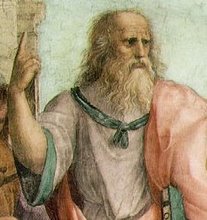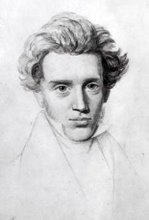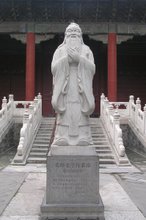
Lifespan: born 490 BC - died 420 BC
Primary Base of Operations: Greek cities of Abdura and Athens
Schools of Thought: Sophism and Ionian
Other Occupations: Scientist
Teacher: ?
Primary Base of Operations: Greek cities of Abdura and Athens
Schools of Thought: Sophism and Ionian
Other Occupations: Scientist
Teacher: ?
- "Man is the measure of all things: of things which are, that they are, and of things which are not, that they are not"
- "Concerning the gods, I have no means of knowing whether they exist or not or of what sort they may be, because of the obscurity of the subject, and the brevity of human life"
- attempted to formulate a reasoned understanding, on a very general level, of a wide range of human phenomena (for example, language and education). He also seems to have had an interest in orthoepeia, or the correct use of words.
- was also renowned as a teacher who addressed subjects connected to virtue and political life. He was especially involved in the question of whether virtue could be taught.
- many consider the main contribution of Protagoras to be his method of finding a better argument by discarding the less viable one. This is known as "Antilogies", and consists of two premises; the first is "Before any uncertainty two opposite theses can validly be confronted", the second is its complement: the need to "strengthen the weaker argument".
- "Concerning the gods, I have no means of knowing whether they exist or not or of what sort they may be, because of the obscurity of the subject, and the brevity of human life"
- attempted to formulate a reasoned understanding, on a very general level, of a wide range of human phenomena (for example, language and education). He also seems to have had an interest in orthoepeia, or the correct use of words.
- was also renowned as a teacher who addressed subjects connected to virtue and political life. He was especially involved in the question of whether virtue could be taught.
- many consider the main contribution of Protagoras to be his method of finding a better argument by discarding the less viable one. This is known as "Antilogies", and consists of two premises; the first is "Before any uncertainty two opposite theses can validly be confronted", the second is its complement: the need to "strengthen the weaker argument".









